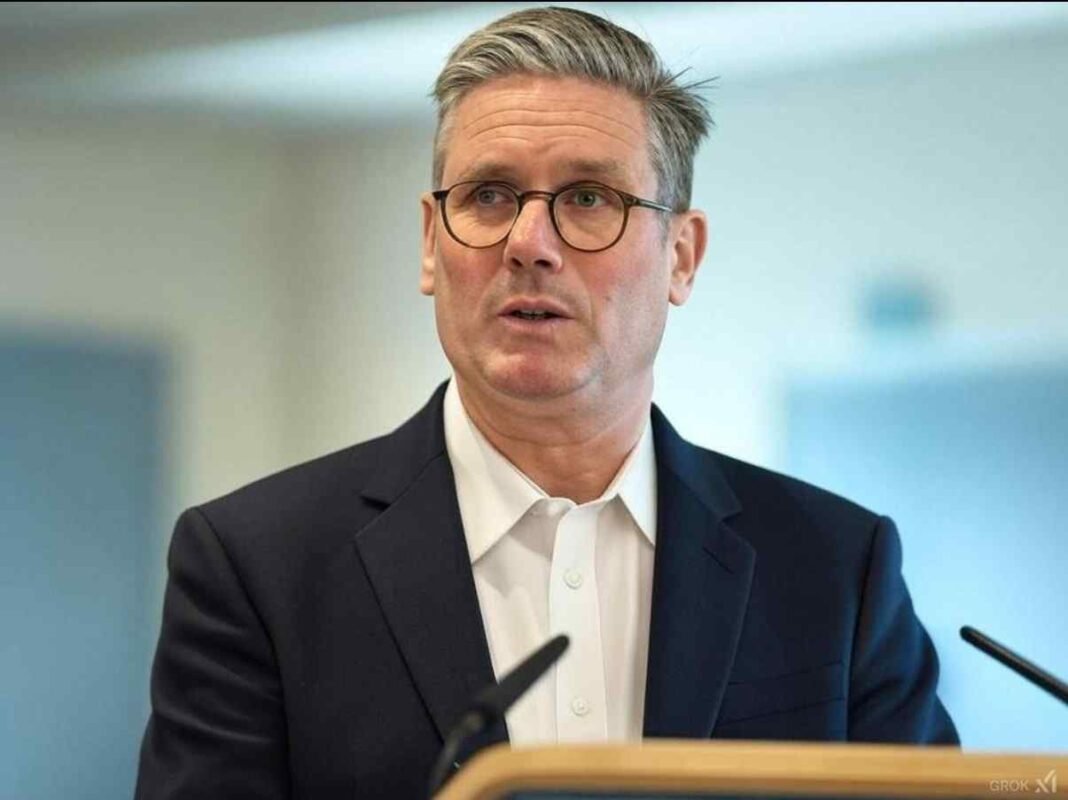UK Prime Minister Keir Starmer is set to travel to Brussels for crucial discussions on defence and security with European partners. The talks, scheduled for Monday, February 3, come at a time when the geopolitical landscape is increasingly shaped by Russia’s ongoing aggression and the economic challenges facing its regime.
Starmer is expected to emphasize the need for European nations to intensify their efforts against Russian President Vladimir Putin, particularly as signs of economic strain emerge within Russia. The Prime Minister will advocate for a united front among allies to ensure the safety and security of Europe in light of Russia’s escalating campaign of sabotage and destruction.
The backdrop to these discussions is a Russian economy that is reportedly struggling under the weight of international sanctions. The UK and its allies have implemented some of the most stringent sanctions ever levied against a global economy, targeting key sectors such as energy and military supplies. Recent reports indicate that Russian oil and gas revenues plummeted by 29% in 2024 compared to 2022, a direct consequence of these sanctions. The measures have also led to increased shipping costs, leaving many sanctioned vessels unable to operate.
Starmer’s government has taken a proactive stance, sanctioning over 2,100 individuals and entities linked to the Russian regime, with more than 1,900 of these sanctions imposed since the onset of Putin’s full-scale invasion of Ukraine. This includes actions against over 100 ships involved in transporting Russian energy, highlighting the UK’s commitment to crippling the financial resources that fuel Putin’s military ambitions.
During his address, Starmer will call on European allies to maintain pressure on Russia while continuing to provide military support to Ukraine. He believes that a concerted effort to target energy revenues and disrupt supply chains for military resources is essential for bringing about a lasting peace in the region.
“We need to see all allies stepping up – particularly in Europe,” Starmer will assert. He will also reference the recent threats of additional sanctions from former President Donald Trump, suggesting that such measures have put Putin on the defensive. “We know that he’s worried about the state of the Russian economy,” Starmer will add, underscoring the importance of sustained international pressure.
The Prime Minister’s focus on security is a cornerstone of his broader “Plan for Change,” which aims to enhance the UK’s national security framework. This includes ensuring that the Armed Forces are equipped with state-of-the-art technology, securing vital medical supply chains, and diversifying energy sources to reduce dependency on any single supplier.
Starmer’s itinerary includes a meeting with NATO Secretary General Mark Rutte, followed by discussions with the leaders of the 27 EU Member States at an informal European Council meeting. During this session, he will outline his vision for a robust UK-EU defence and security partnership, aimed at addressing shared threats and enhancing cooperation on issues such as cross-border crime and illegal migration.
The Prime Minister’s commitment to strengthening ties with the European Union is part of a broader strategy to drive economic growth, improve living standards, and ensure the safety of the UK. He is determined to make Brexit work more effectively for the British populace while adhering to his government’s red lines, which include no return to freedom of movement and no rejoining the customs union or single market.
As the UK navigates its post-Brexit landscape, Starmer’s administration is keen to foster a collaborative approach with European partners, recognizing that collective security is paramount in the face of evolving threats. The upcoming talks in Brussels are expected to set the stage for a renewed commitment to shared security objectives and a unified response to the challenges posed by Russia.
In conclusion, Prime Minister Keir Starmer’s visit to Brussels represents a pivotal moment in the UK’s diplomatic efforts to bolster European security. By advocating for a united front against Russian aggression and promoting a comprehensive UK-EU defence partnership, Starmer aims to reinforce the foundations of peace and stability in Europe while addressing the pressing economic and security challenges of the present day.








